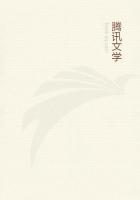Tomb, bridal-chamber, eternal prison in the caverned rock, whither go to find mine own, those many who have perished, and whom Persephone hath received among the dead! Last of all shall I pass thither, and far most miserably of all, before the term of my life is spent. But I cherish good hope that my coming will be welcome to my father, and pleasant to thee, my mother, and welcome, brother, to thee; for, when ye died, with mine own hands I washed and dressed you, and poured drink-offerings at your graves; and now, Polyneices, 'tis for tending thy corpse that I win such recompense as this.
And yet I honoured thee, as the wise will deem, rightly. Never, had been a mother of children, or if a husband had been mouldering in death, would I have taken this task upon me in the city's despite. What law, ye ask, is my warrant for that word? The husband lost, another might have been found, and child from another, to replace the first-born: but, father and mother hidden with Hades, no brother's life could ever bloom for me again. Such was the law whereby I held thee first in honour; but Creon deemed me guilty of error therein, and of outrage, ah brother mine! And now he leads me thus, a captive in his hands; no bridal bed, no bridal song hath been mine, no joy of marriage, no portion in the nurture of children; but thus, forlorn of friends, unhappy one, I go living to the vaults of death.
And what law of heaven have I transgressed? Why, hapless one, should I look to the gods any more,-what ally should I invoke,-when by piety I have earned the name of impious? Nay, then, if these things are pleasing to the gods, when I have suffered my doom, I shall come to know my sin; but if the sin is with my judges, I could wish them no fuller measure of evil than they, on their part, mete wrongfully to me.
CHORUS
Still the same tempest of the soul vexes this maiden with the same fierce gusts.
CREON
Then for this shall her guards have cause to rue their slowness.
ANTIGONE
Ah me! that word hath come very near to death.
CREON
I can cheer thee with no hope that this doom is not thus to be fulfilled.
ANTIGONE
O city of my fathers in the land of Thebe! O ye gods, eldest of our race!-they lead me henc--now, now-they tarry not! Behold me, princes of Thebes, the last daughter of the house of your kings,-see what I suffer, and from whom, because I feared to cast away the fear of Heaven!
(ANTIGONE is led away by the guards.)
CHORUS (singing)
strophe 1
Even thus endured Danae in her beauty to change the light of day for brass-bound walls; and in that chamber, secret as the grave, she was held close prisoner; yet was she of a proud lineage, O my daughter, and charged with the keeping of the seed of Zeus, that fell in the golden rain.
But dreadful is the mysterious power of fate: there is no deliverance from it by wealth or by war, by fenced city, or dark, sea-beaten ships.
antistrophe 1
And bonds tamed the son of Dryas, swift to wrath, that king of the Edonians; so paid he for his frenzied taunts, when, by the will of Dionysus, he was pent in a rocky prison. There the fierce exuberance of his madness slowly passed away. That man learned to know the god, whom in his frenzy he had provoked with mockeries; for he had sought to quell the god-possessed women, and the Bacchanalian fire; and he angered the Muses that love the flute.
strophe 2
And by the waters of the Dark Rocks, the waters of the twofold sea, are the shores of Bosporus, and Thracian Salmydessus; where Ares, neighbour to the city, saw the accurst, blinding wound dealt to the two sons of Phineus by his fierce wife,-the wound that brought darkness to those vengeance-craving orbs, smitten with her bloody hands, smitten with her shuttle for a dagger.
antistrophe 2
Pining in their misery, they bewailed their cruel doom, those sons of a mother hapless in her marriage; but she traced her descent from the ancient line of the Erechtheidae; and in far-distant caves she was nursed amid her father's storms, that child of Boreas, swift as a steed over the steep hills, a daughter of gods; yet upon her also the gray Fates bore hard, my daughter.
(Enter TEIRESIAS, led by a Boy, on the spectators' right.)TEIRESIAS
Princes of Thebes, we have come with linked steps, both served by the eyes of one; for thus, by a guide's help, the blind must walk.
CREON
And what, aged Teiresias, are thy tidings?
TEIRESIAS
I will tell thee; and do thou hearken to the seer.
CREON
Indeed, it has not been my wont to slight thy counsel.
TEIRESIAS
Therefore didst thou steer our city's course aright.
CREON
I have felt, and can attest, thy benefits.
TEIRESIAS
Mark that now, once more, thou standest on fate's fine edge.
CREON
What means this? How I shudder at thy message!
TEIRESIAS
Thou wilt learn, when thou hearest the warnings of mine art. As I took my place on mine old seat of augury, where all birds have been wont to gather within my ken, I heard a strange voice among them;they were screaming with dire, feverish rage, that drowned their language in jargon; and I knew that they were rending each other with their talons, murderously; the whirr of wings told no doubtful tale.
Forthwith, in fear, I essayed burnt-sacrifice on a duly kindled altar: but from my offerings the Fire-god showed no flame; a dank moisture, oozing from the thigh-flesh, trickled forth upon the embers, and smoked, and sputtered; the gall was scattered to the air; and the streaming thighs lay bared of the fat that had been wrapped round them.
Such was the failure of the rites by which I vainly asked a sign, as from this boy I learned; for he is my guide, as I am guide to others. And 'tis thy counsel that hath brought this sickness on our State. For the altars of our city and of our hearths have been tainted, one and all, by birds and dogs, with carrion from the hapless corpse, the son of Oedipus: and therefore the gods no more accept prayer and sacrifice at our hands, or the flame of meat-offering;nor doth any bird give a clear sign by its shrill cry, for they have tasted the fatness of a slain man's blood.















